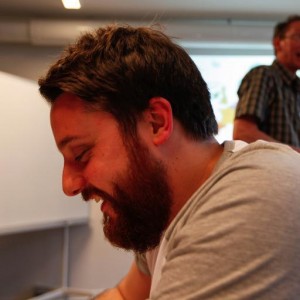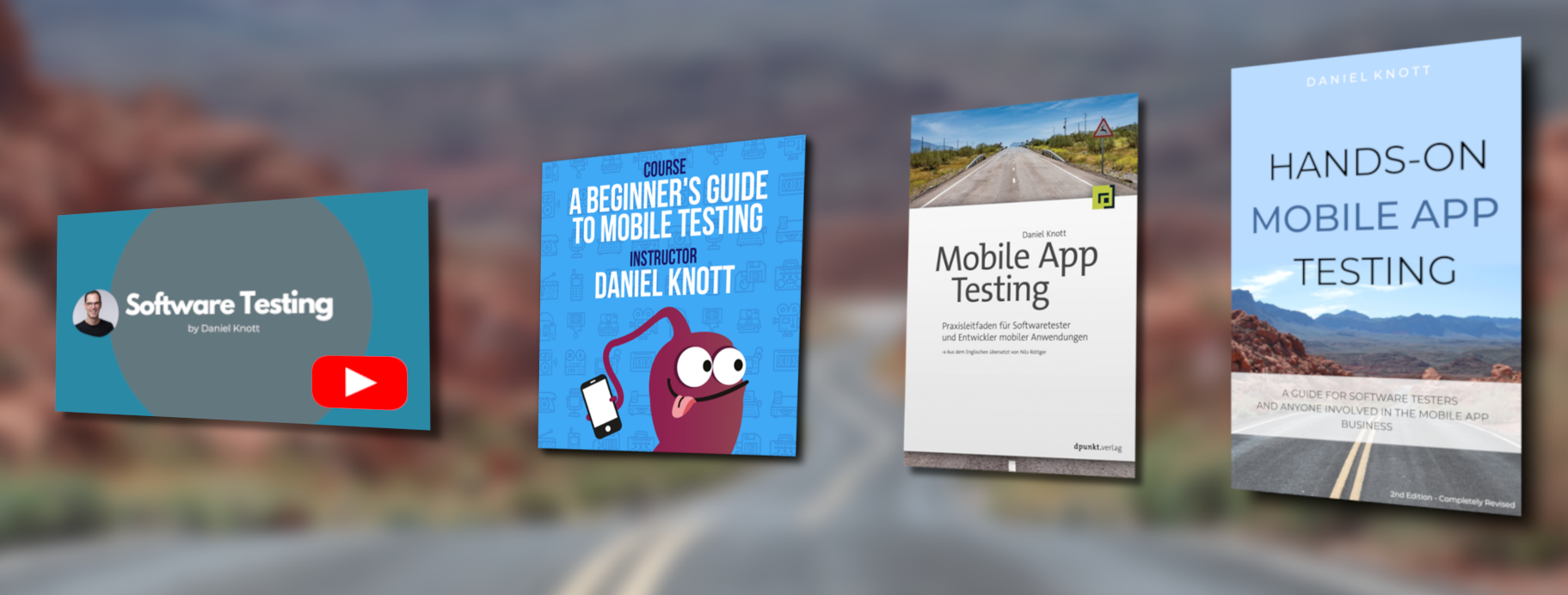 This time in the “People in Testing” series, I had the chance to interview Richard Bradshaw aka the FriendlyTester.
This time in the “People in Testing” series, I had the chance to interview Richard Bradshaw aka the FriendlyTester.
Daniel: What is currently your biggest challenge at work?
Richard: Time! I am currently the sole tester on a project. Responsible for the testing of the apps, which include iOS, Android the a responsive website. Also until recently, this also included a windows phone app. It’s a lot to manage. So it becomes a real balancing act as to where I spend my time. Fortunately the team is aware of this and we stagger the releases. We tend to have iOS ready at least a week before Android. Then the web is more sporadic, mainly because we are able to release that instantly, so the risk is lower, due to the fact we can instantly rollback or push a fix if something was to go wrong, this isn’t as easy with the apps, especially iOS, due to the submission times. Another advantage of the way we work is that the platforms are aligned, meaning that we tend to be delivering the same functionality to all at the same time. This is advantageous to me as I can test across platforms at the same time, but also as with most projects, there is a lot of tacit knowledge, so testing all three while it’s still there helps.
Which check automation tool are you using in your daily work and are you happy with it?
We currently don’t have any check automation on our mobile apps. We have some on our backend APIs but I am not responsible for that. Instead I have focused our automation efforts on tools that support my testing. For example, I have automated all the data creation and manipulation, this allows me to spend more time testing, instead of in mongo shell. I have also focussed a lot of effort automating device interactions, especially on Android. So I create a script which uninstalls the old version of the app, and installs the latest version. Also a script that clears the data of our app, incredibly useful in our context. There is then also recording the screen for demos or bug reports and taking and downloading screenshots. All these small scripts same me valuable time.
I may pursue some UI automation on the apps in the future, however right now, I find most of the tools are immature, as are the platforms for that matter. They are getting better, no doubt there, but right now, being the sole tester on the time, there simply isn’t the time to invest in it. I can’t be spending hours trying to automate something I can do in a few seconds, there is no value there.
Do you think the role as a software tester will change in the next years? If yes, what do you think will change?
I think roles are always changing, the lines are always becoming more blurred. But currently, my views are I see developers becoming more involved in testing, but I don’t think it’s feasible for someone to excel at both testing and programming. Of course, there will be many generalists. So I see many testers taking on the role of a test evangelist, or a testing coach, the person responsible for guiding testing, teaching testing skills to whomever, but also testing. Something similar to the test jumper that James Bach defined a few years back.
I also see more testers “shifting left”, not sure I really like that term, but essentially what I mean is being more involved in the earlier stages of development. Being around at the requirement gathering stage, being involved and allowed to use their core testing skills to really probe the problems the software is intended to solve. Also being able to influence the design of the software, to build testability in, making automated checks easier at all levels, but also making the product easier to test. Even down to the approach taken to development to reduce risk, such as building a vertical slice, or focusing on the API/backend before starting on the UI.
Please describe a typical day in your role as software tester?
I spend my day sourcing and being the source of information. I tend to start my day by prioritising the work I am aware of it. So first I read emails, I am very much an inbox 0 person. Then I will combine the tasks I have, with the JIRA tasks of my project and work out which is the highest priority. I tend to work in short intervals, very close to pomodoro but not that strict. So I will start tackling the list. But we are very distributed team, we Slack for our communications, so it highly likely that I will get requests via Slack throughout the day for information. So as I started with, my my goal each and every day is sourcing and sharing information in various mediums. In regards to testing the apps, I tend to work my way through the tickets first, doing some shallow testing on the features, essentially doing good enough checks. But throughout that I will be making mental and physical notes on areas that are going to require deeper testing. I then collate these and will do two hour testing sessions focussed on these test ideas. Post those sessions, I feedback to the team my findings, especially if some bugs have been found, so they can re-prioritize their work/backlog. Another important task that I try and do most days, minimum of every two days, is up date my “master” mindmap. This is a mindmap of all the functionality of the app(s), I use it for generating test ideas, but it also serves as a regression checklist prior to releases.
Which kind of mobile app do you recommend and why?
I prefer simple apps, apps that leave all the complexity to the server. For me, an app should be a presentation layer for an API, as the API is where the business is. Now of course they’re exceptions to this rule, such as games, but for me, I find apps that do as little as possible the ones that perform better and tend to be faster. Also, when the complexity is in the backend, it allows the designers and developers to focus on UX, which is incredibly important in the mobile space.
About – Richard Bradshaw
Richard is a friendly tester with a real passion for testing. He is very active in the testing community and hosted the very popular meetup in Nottingham called #NottsTest. Richard is also a founding member and co-organiser of the Midlands Exploratory Workshop on Testing (#MEWT). Richard is currently working as an Independent Tester after having set up Friendly Testing Limited in 2014. He has been testing for over 8 years now. Richard has been testing the leading mobile application of a major telecoms company in the UK for the last 9 months with over 2 million active users. Richard is blogging at http://www.thefriendlytester.co.uk/ or you can follow him on twitter.
